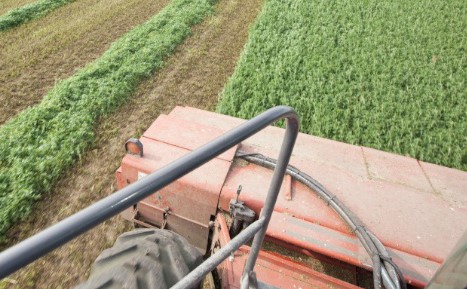Kids who grow up on farms learn dedication and hard work, employers says; urban kids become pathetic losers

Saturday, August 01, 2015 by: Ethan A. Huff, staff writer, updated October 17, 2019
The value of hard work isn’t necessarily learned in the classroom; it’s learned on the land. Or at least that’s what many employers are saying these days about the quality of their workers – employees who grew up in rural areas on farms tend to be more engaged and have a strong work ethic, while employees who grew up in cities attending university without having to work tend towards laziness and often lack necessary life skills.
It’s a trend that’s sweeping Australia, anyway, (and most definitely the U.S.) with an emerging generation of young folks who are highly educated in the system, but who lack basic “street” knowledge and willingness to get their hands dirty. Many of these college-educated youth look good on paper, say experts, but they just don’t have the necessary experience required in a real-world work setting.
“I’ve had countless experiences with kids who are just not ready,” says Jack Trenamen, a mining employer in Australia’s Queensland region, to News.com.au. “They haven’t picked up the skills that you learn by working and that’s often because they haven’t had to.”
“They come in late, they don’t realize that they might have to do things they don’t want to, and they don’t appreciate the job. They think if they don’t like it here they can just pack up and get another job around the corner, keep chasing that almighty dollar without building their skills.”
Today’s young people often don’t work until after college, which ironically makes them unemployable
It might sound like a sweeping generalization to say all this, but the Australian Bureau of Statistics has collected considerable data over the years that affirms this sentiment. Only a small fraction, some 31 percent, of 15 to 19-year-old students in Australia currently work part-time jobs, says the agency, which means that the vast majority of young people are working their first jobs after graduating from college.
This is a sharp contrast from past generations where it was the norm to work after-school jobs throughout adolescence, which prepared young people for the real world in a way that today’s emerging generation won’t ever realize. And even when they do finally enter the workforce post-graduation, today’s youth often don’t know how to actually get the job done.
“A number of our members consistently tell us they’re seeing students come out of university or training programs and they might have the academic or theoretical skills, but no skills to work at all,” says Kate Carnell, CEO of the Australia Chamber of Commerce and Industry, affirming what mining employer Trenamen is seeing with his own workforce.
“General issues are not understanding that a job is about turning up on time every day, not just when you feel like, that it’s about taking direction, and basic things like you’ve got to be well presented and you’ve got to be pleasant. The number of young people not working while they’re in school is one of the problems.”
Affluence, mechanization, and industrialization have made today’s young people lazy and unmotivated
It’s a trend that can also be seen throughout the U.S., as many modern conveniences and technological advances have driven children indoors on their computers and iPads rather than outside playing or out working to support their keep. Parents are actually doing their children a disservice when they keep them from work in favor of studies, which limits the level of practical experience these young folks will gain to help them survive once they leave the nest.
“It’s not that the universities are teaching the wrong thing, but more that young people are encouraged to get an eduation, follow that to a job they believe they want to do, and the assumption that it’s going to be an automatic match with what’s required in the labor market,” says Professor Johanna Wyn, director of the Youth Research Centre at the University of Melbourne, as quoted by News.com.au.
learn down on the farm
And there are fewer opportunities for the young people of America to “learn down on the farm”. Today all of Americas food supply is produced by 2% of our population. That’s right the food for every hundred Americans is produced by just 2 people.
Consider a Family lifestyle farm in St David Springs. Make it a family project and learning environment. Consider programs such as FAA, AQHA and 4H to provide training and support from those that know the ropes.
